Vegan vs. vegetarian—you’ve likely come across these terms before, right? But did you know there are over 80 million vegans worldwide?
And that’s not all: Take New York, for instance. It’s now one of the most vegan-friendly cities globally, with vegan and vegetarian options gaining popularity in restaurants and street food alike.
Okay, you might be wondering at this moment: isn’t this just a “fad”?
Facts speak for themselves. As the number of vegan and vegetarian consumers grows around the world, the plant-based food market is experiencing exciting growth!
You may have noticed the increasing presence of these foods on supermarket shelves. And it doesn’t stop there! The health and beauty industry is also focusing on producing vegan cosmetics.
But let’s get to the essence of this article. If you’ve made it this far, you might still be unsure about what it means to be vegan. Know that vegans eat everything that does not derive from animal exploitation.
Becoming vegan is not extremely difficult, but it is a choice that should be made consciously. And, also, with the proper nutritional knowledge of the foods you should consume daily. See more details below.
Understanding What It Means to Be Vegan
The term vegan refers to a person who has consciously decided to eliminate animal-derived foods from their daily diet. Generally, veganism is a broad concept because it also involves a lifestyle change that goes beyond food.
For example, a vegan does not eat meat, fish, eggs, honey, milk, and its derivatives. This choice also extends to daily life and, therefore, to clothing (without wool, silk, and leather).
Additionally, those who follow a vegan lifestyle also try to choose cosmetics and care products that do not have animal-derived ingredients.
Another relevant point is zero waste, which is generally linked to the vegan philosophy, including the trend of not using disposable plastic products because they impact the environment.
However, we know that “pure” veganism in our contemporary times can be challenging depending on the circumstances since many animal-derived elements are found in foods, daily-use items, and even medications.
Therefore, those who wish to follow a vegan diet need to always be attentive to product labels and seek reliable information and preferably medical or nutritional guidance to make this dietary transition safer.
Understanding the Differences Between Vegan and Vegetarian
To understand the difference between veganism and vegetarianism, we need to understand that the main issue lies in the type of food they consume, based on the shared concept of wanting to avoid unnecessary animal exploitation as much as possible.
While vegetarians usually prioritize a diet without meat or fish but typically consume derived products like eggs, milk, and cheese, vegans follow a stricter diet without even the most common derivatives.
Moreover, as we mentioned earlier, veganism is also more closely linked to the feeling of repulsion towards some practices considered abusive in the treatment of animals during the production of certain foods.
So now that we’ve seen what it means to be vegan, let’s understand some classifications of vegetarians.
Different Types of Vegetarian Diets
Ovolactovegetarian
As is known, vegetarian diets may not meet the daily needs of some proteins and vitamins, especially when done without planning and care.
In particular, it is not uncommon to lack essential amino acids and vitamin B12, which is mainly present in animal-derived foods, in addition to iron easily found in red meat.
To address these deficiencies, the ovo-lacto-vegetarian diet is balanced in macro and micronutrients, also indicated for those who, for various reasons, do not intend to eat animal meat.
However, it is worth remembering that this is not a restrictive, low-calorie, or weight-loss diet. It is a predominantly vegetarian eating plan but integrated with animal-derived foods that help meet human body needs more easily, such as nutrients with proteins and essential amino acids, as well as minerals like calcium, iron, and iodine.
When done well, this diet can positively contribute to cardiovascular health.
Lactovegetarian
The lactovegetarian is a term sometimes used to describe a vegetarian who does not eat eggs but consumes dairy products.
In other words, a lactovegetarian diet includes plant-based foods, including fruits, vegetables, grains, and beans, as well as dairy products like milk, cheese, butter, goat cheese, goat milk, and so on.
Strict Vegetarian
The strict vegetarian is someone who, like a vegan, completely excludes animal-derived foods.
In this sense, a strict vegetarian diet needs to be well-planned, containing vegetables, fruits, whole grains, legumes, nuts, seeds, soy protein, unconventional food plants, plant-based foods, among others. All of this aims to provide adequate nutrition, even without meat and animal-derived products.
In fact, many athletes adopt a strict vegetarian or vegan diet to improve quality of life, health, and sports performance.
But is there any risk in adopting a vegan diet? Let’s find out.
Do Vegan and Vegetarian Diets Pose Health Risks?
What is defined as nutrient deficiency risks are often factors that do not depend on a vegetarian or vegan diet but on each person’s physical condition. In fact, even people who consume animal and plant foods can suffer from iron or vitamin B12 deficiencies, for example.
As for proteins, the plant kingdom offers many excellent qualities. However, there are some precautions to be taken when following a vegan or vegetarian diet, as they are diets that exclude some protein-rich foods.
Although these diets can be healthy, they also present many challenges.
Vegetarians who consume dairy and eggs tend to obtain the necessary nutrients more easily. But if you choose to follow a more restrictive vegetarian or vegan diet, you will need to be more selective in your food choices.
The diet should be as varied as possible to ensure adequate intake of all nutrients and to be balanced from an energy standpoint, aiming to provide the body with enough energy for metabolism and muscle work.
However, even though we have already pointed out the challenges that may come with adopting this type of diet when done carefully, the benefits can be numerous. Moreover, nowadays, there are many more options and knowledge on the subject than in the past.
How to Safely Replace Animal Protein in a Vegan Diet
In addition to knowing what it means to be vegan, the main concern for those who want to follow a meat-restricted diet is replacing animal proteins. But is it really possible to replace them with plant proteins without health consequences?
Proteins are fundamental to all biological processes related to life, such as tissue repair, antibody production, hormone, and enzyme synthesis.
In this context, it is true that most plant proteins are incomplete when compared to animal proteins, hence the importance of creating a balanced vegan eating routine. However, there are foods like quinoa, buckwheat, and soy protein that are complete protein sources.
In this regard, it is also worth mentioning that it’s not just the quantity that matters but also the quality, which depends on the amino acids present in the proteins.
In other words, when a protein contains the essential amino acids in the right proportions required by the human body, it is said to have high biological value, as is the case with red meat, poultry, fish, eggs, milk, cheese, and yogurt.
To address this deficiency, it is recommended to combine cereals, grains, and legumes, as the essential amino acid deficiencies of cereals are compensated by those of legumes. And, as with any food, in excess, they can also exceed the recommended caloric intake.
In this sense, we can say that even though meat is a food rich in proteins and noble minerals, it is not irreplaceable, and a vegan or even vegetarian diet can bring advantages for our health and the environment.
By following a varied and well-planned diet, seeking to diversify plant protein sources as much as possible, it is possible to obtain the essential amino acids in the right amounts, even if not always in the same meal.
Vegan vs. Vegetarian: Is Supplementation Necessary?
As we have discussed here, the vegetarian or vegan diet is a sustainable diet in almost any physiological condition, provided it is done with planning and nutritional support in some cases. But, even after considering proteins, calcium, omega-3, iron, and all other nutrients, it is important to also think about the need for supplements.
When following a vegan diet, it is necessary to consider a daily dose of vitamin B12, which is a supplement frequently recommended for those who follow a diet without consuming meat or animal-derived products, given the importance of this vitamin for our body’s health.
Did you know that some studies indicate that watercress may be an important source of vitamin B12?
Advantages and Disadvantages of a Vegan Diet
We have already seen what it means to be vegan as a lifestyle. There are those who follow this diet for ethical, environmental, or health reasons.
The advantages of a vegan diet are generally the reduction of cholesterol intake present in meats, cheeses, and butter, for example. This tends to reduce the formation of atherosclerotic plaques and, consequently, the risk of cardiovascular diseases.
Furthermore, some studies indicate that a diet without animal products may be favorable for the prevention of certain cancers, as well as helping to reduce uric acid levels in the blood, responsible for the formation of urinary stones, for example.
Benefits of a Vegan Diet: Summary
- Lower propensity for developing heart diseases
- May reduce the risk of developing cancer, especially colorectal, stomach, throat, lung, mouth, colon, prostate, and pancreas.
- May reduce blood sugar levels
- May lower the risk of developing high blood pressure
- May have a positive impact on people with arthritis
- May contribute to increased energy
- Positive impact on environmental conservation
All the points above have been the subject of scientific research. However, it is worth noting that many of them still require more in-depth studies to investigate such results further.
Care for a Healthy Vegan Diet
Among the disadvantages of a vegan diet are some possible nutritional deficiencies in certain proteins, calcium, iron, vitamin B12, and zinc.
Therefore, there is a recommendation regarding proteins to always associate legumes with cereals to obtain the amino acids necessary for our bodies. To address a potential low calcium level, it is possible to consume foods supplemented with this mineral, such as rice or almond milk, for example.
It is ideal to be careful not to consume foods rich in phytates (like cabbage and bran), oxalates (like beetroot, spinach, cocoa), and tannins (tea, coffee, red wine, and cocoa) excessively, as they can reduce calcium absorption.
To compensate for the low intake of vitamin B12, which is more abundant in animal-derived foods, it is ideal to look for supplements or foods to which it has been added. And, to obtain zinc, it is important to seek accessible and delicious alternatives like lentils, chickpeas, beans, pumpkin seeds, and wheat germ.
In any case, it doesn’t hurt to mention once again that it is preferable to have guidance from a nutritionist to avoid health problems due to a more restrictive diet compared to the one you have been conditioned to your whole life.
What do you think of this type of diet? Have you ever thought about becoming vegetarian or vegan?








